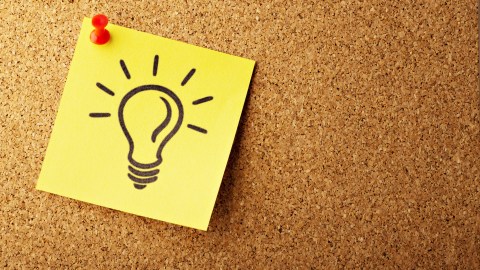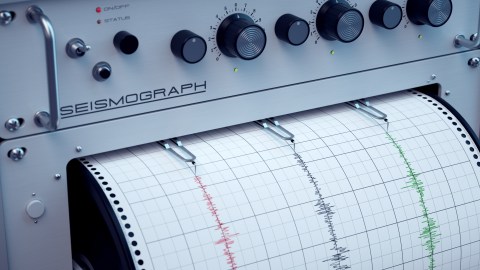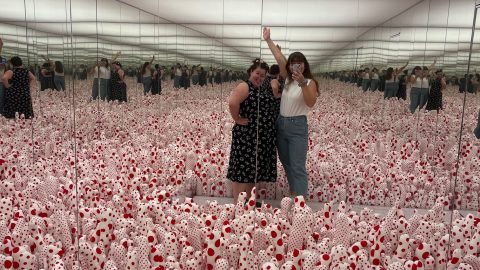David Fleming, director of the National Museums Liverpool laid the groundwork for the next AAM annual meeting in his “Big Ideas” session at the conference last spring: “when I use the term “social justice,” he said, “I mean two things: how museums provide equality of access and how museums address social ills—perhaps even campaigning to right them.”
In keeping with our 2015 meeting theme, I hope that some of you are planning to submit session proposals for the 2015 meeting (Atlanta, April 26-29) that fit into either or both of Fleming’s categories. The session proposal forms are available online, and you can submit through August 25th. (See notes at the end of this post for tips on submitting.)
To nudge things along, I’m going to share my wish list for some sessions I hope people propose.
Museums and Homelessness. Back in 1992, the Smithsonian hosted “The Etiquette of the Undercaste,” an exhibit in which visitors are guided through the world of homelessness by lying in a morgue drawer, emerging “reborn into a new life, the harsh world of a child, then an adult, of the lowest class of American society.” Earlier this year the Queens Museum hosted an installation by the Los Angeles Poverty Department (LAPD—get it?) in which visitors sat on bunk beds to watch a performance by formerly homeless people. These exhibits both helped build empathy and understanding for the homeless. How do we embody such empathy in our own work? How are museums providing equitable access to the homeless, whether that means making them welcome in the galleries, or providing access to facilities (like bathrooms)? How do museums balance serving the homeless with the concerns or discomfort of other patrons? Are there museums help their communities grapple with practical solutions to alleviating homelessness?
Museums and the internal practice of social justice. In the past few years we’ve seen protests holding museums accountable for the labor practices on foreign building projects. (As a banner at one “Occupy Museums” protest asked, “What does an ethical global museum look like?”) There is a groundswell of concern about the legality and ethics of unpaid internships. (Many of the recent museum studies graduates I have spoken to complain that such internships seem to be a prerequisite for landing a paid job, even though they can ill-afford such gigs, given their student debt.) An increasing number of city and state based initiatives are pushing for higher minimum wages, in light of the fact that the current federal minimum wage hasn’t succeeded, in the past few decades, in lifting most people out of poverty. I’d love to hear from museums that have policies that cover the social justice implications of their own activities: the downstream effects of operating overseas, internships, commitment to paying a living wage and other issues. More broadly, what would a social justice scorecard for museum practice look like? That would be a very interesting conversation.
Museums putting current social justice issues into the context of history, art and/or biology. The Journal Science recently devoted a whole issue to “the science of inequality.” (They made this issue available for free online. Nice touch, eh?) The articles tackle issues like “the ancient roots of the 1%,” “On the psychology of poverty” and “Can disparities by deadly?” I’m sure that collectively museums have done a ton of good work in the same vein. Back in 1988 the Museum of the City of New York mounted an exhibition called “On Being Homeless: An Historical Perspective.” (I know this because the exhibit’s poster won PubComp that year, so it is hanging in the hall here in the AAM offices.) This year the Witherspoon Art Museum featured “Inequality and Social Justice in a Changing World,” exploring art created as protest and social commentary and using this as a jumping off point for discussions and critical thinking about societal issues. The Oslo Zoo recently hosted a recreation of a racist “human zoo” (which actually existing at the 1914 World Fair) to remind Norwegians about this aspect their history. I’d love to hear learn more about how museums are using their credibility and reach to help ground our current public debates about values, and how we craft government policies that reflect these values.
I hope these ideas spark your thinking and encourage you to submit sessions on these or related topics. Feel free to use the comment section of this post to offer your own wish list, or to look for presenters interested in jumping on board your proposal.
As with last year, the proposals on the AAM website are open for comment until they are submitted (remember, deadline August 25!) so you can invite people to hop on over and comment on your draft proposal there, as well.
Here are a few tips for a smooth submission:
- Start now and revise the proposal online in response to input
- Check back periodically to see if anyone has left comments
- Do your first draft proposal offline, and copy and paste it into the online form
- That’s because the form times out every 20 minutes—hit save frequently, but just in case, it’s best to have an offline copy as fallback
- Make sure session organizer is a member of the Alliance
- Make sure at least one of your presenters, or the moderator, is a staff member at a museum
- If someone you want to add to your session isn’t in the Alliance database, (that will be clear when you search for their name to add), ask them to go online and create a profile for themselves
- Review the session formats: they have been revamped this year
That’s it! Good luck. I will be keeping an eye on the proposals, and offering comments online. I hope to see your session posted there soon.








